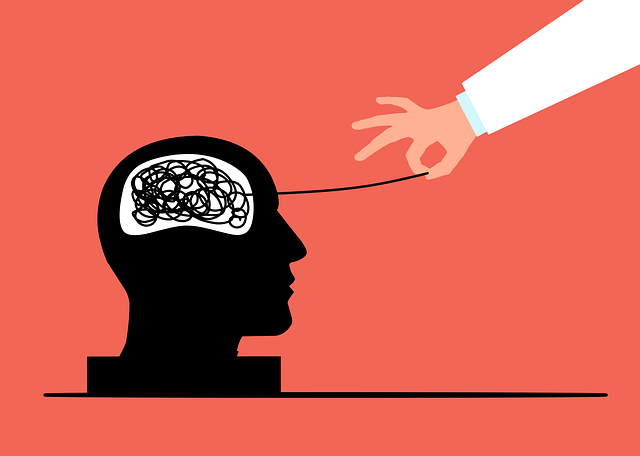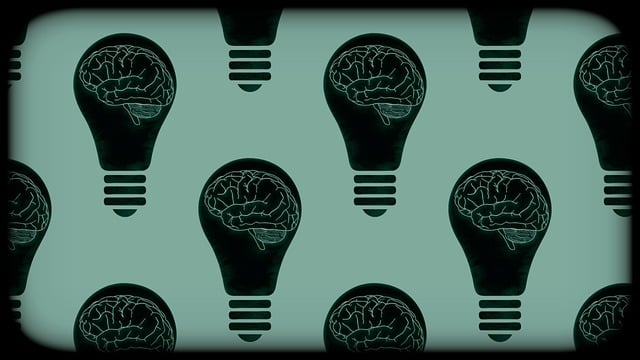Mental wellness is paramount for adolescent development, and self-care practices alongside therapy empower teens to manage stress and emotions. Encouraging empathy and open communication in relationships fosters healthy bonds and emotional intelligence. Community outreach programs normalizing mental health conversations provide support systems, encouraging teens to seek help through tailored self-care or therapy. In couples therapy, addressing communication issues is key; therapists create safe spaces for expressing feelings and managing past traumas. Burnout prevention is vital for healthcare providers. Adolescents benefit from structured self-care routines including mindfulness exercises, enhancing emotional processing. Open family communication strengthens bonds and positively impacts mental wellness. Incorporating mindfulness techniques into daily life reduces stress, anxiety, and depression symptoms, benefiting couples therapy by improving communication and self-awareness, fostering better relationship quality.
“Uncover the power of self-care in fostering mental wellness among adolescents. This comprehensive guide explores essential aspects of supporting young minds, from understanding their unique mental health challenges to practical strategies like mindfulness and open communication. We delve into creating structured self-care routines tailored for adolescents, addressing crucial topics such as couples therapy and its impact on mental wellness. Discover how effective communication can revolutionize the way we support teens, ultimately enhancing their relationships and overall well-being.”
- Understanding Mental Wellness and Self-Care for Teens
- Identifying Communication Issues in Couples Therapy
- Building Blocks of a Self-Care Routine for Adolescents
- Incorporating Mindfulness and Relaxation Techniques
- Enhancing Relationships through Open Communication
Understanding Mental Wellness and Self-Care for Teens

Mental wellness is a vital aspect of adolescent development, often shaping a teen’s overall well-being and future resilience. For teens, self-care practices can be transformative tools to navigate the challenges of growing up, including managing stress, anxiety, and emotional ups and downs. While many turn to therapy for support, self-care routines offer a proactive approach to mental wellness, empowering teenagers to take charge of their emotional health.
Encouraging empathy building strategies and open communication within couples can significantly contribute to a teen’s mental wellness journey. By fostering healthy relationships and promoting emotional intelligence, teens learn to express their feelings and understand others’ perspectives. Community outreach program implementations that focus on mental health awareness further play a crucial role in normalizing conversations around emotional well-being, providing support systems, and encouraging teens to seek help when needed, whether through therapy or self-care practices tailored to their unique needs.
Identifying Communication Issues in Couples Therapy

In couples therapy, identifying communication issues is a cornerstone of effective treatment for adolescent teens. Often, conflicts arise from unspoken assumptions, misunderstandings, or past traumas that surface during discussions. Therapists play a crucial role in facilitating open dialogue by creating a safe and non-judgmental environment. This process involves helping each partner express their feelings and needs clearly while actively listening to the other’s perspective.
Effective communication requires not just speaking but also active hearing, which includes validating emotions, reflecting back thoughts, and ensuring both parties feel heard and understood. For teens struggling with trauma or social skills deficits, this dynamic can be particularly challenging. Trauma support services may offer additional tools for managing emotional responses during therapy sessions. Burnout prevention strategies for healthcare providers involved in these cases are also essential to maintaining the quality of care over time.
Building Blocks of a Self-Care Routine for Adolescents

For adolescents, establishing a robust self-care routine is paramount for navigating the complexities of growing up. This often involves addressing unique challenges such as academic pressures, peer relationships, and identity formation. The foundation of a self-care routine for this demographic should include structured activities that promote mental wellness. One effective approach is to incorporate daily practices like mindfulness exercises or journaling, which can help teens process emotions and gain valuable self-awareness.
Moreover, fostering open communication within the family unit plays a pivotal role in adolescent self-care. Encouraging honest conversations about feelings and experiences, perhaps during designated family time or mealtimes, creates a safe space for sharing. Considering the potential communication issues that can arise between adolescents and their parents or guardians, seeking therapy for teenage couples can offer a platform to enhance understanding and strengthen familial bonds. Effective communication strategies learned here can be applied beyond the therapeutic setting, positively impacting the teen’s overall mental wellness.
Incorporating Mindfulness and Relaxation Techniques

Incorporating mindfulness and relaxation techniques into your self-care routine is a powerful way to improve mental wellness, especially for adolescent teens navigating life’s challenges. These practices have been shown to reduce stress, anxiety, and even depression symptoms, fostering better emotional regulation. Through simple yet effective methods like deep breathing exercises, meditation, or yoga, individuals can learn to be present in the moment, quieting the mind and cultivating a sense of inner peace. This is particularly beneficial for those experiencing communication issues within couples therapy, as it enhances self-awareness and promotes healthier interactions with others.
By integrating mindfulness into daily life, one can better manage stress triggers and prevent mental health setbacks. It empowers individuals to take proactive steps towards healing and growth, which is crucial in the context of mental health policy analysis and advocacy. This focus on self-care not only benefits the individual but also contributes to a broader Mental Health Awareness culture, where prevention strategies are prioritized, ensuring better support for vulnerable populations such as adolescent teens and couples facing communication challenges.
Enhancing Relationships through Open Communication

Open communication is a cornerstone of enhancing relationships, especially for adolescents and couples navigating therapy. It involves actively listening to one another, expressing feelings honestly, and creating a safe space free from judgment. This process can significantly improve mental wellness by fostering deeper connections and understanding. In today’s digital era, where hustle and bustle often dominates our lives, taking time to engage in meaningful conversations can be a game-changer.
Effective communication helps address underlying issues, whether it’s managing stress together through workshops or organization or practicing mindfulness during meditation sessions. By learning to communicate openly, couples and teens can improve their relationships’ quality, resolve conflicts constructively, and ultimately, enhance their overall mental wellness. This aspect is often emphasized in popular Mental Wellness Podcast Series Production, where real-life stories and expert insights highlight the power of honest dialogue in transforming lives.
Developing a mental wellness self-care routine is essential for adolescent teens to navigate their emotional well-being, especially when coupled with effective communication in therapy. By addressing communication issues within couples therapy, therapists can foster healthier relationships and empower teens to prioritize self-care. Through identifying specific practices like mindfulness and relaxation techniques, adolescents gain valuable tools to manage stress and enhance their overall mental health, ultimately leading to improved resilience and a brighter future. Incorporating open dialogue and building blocks tailored to their needs ensures that therapy for adolescent teens becomes a transformative journey towards better mental wellness.














